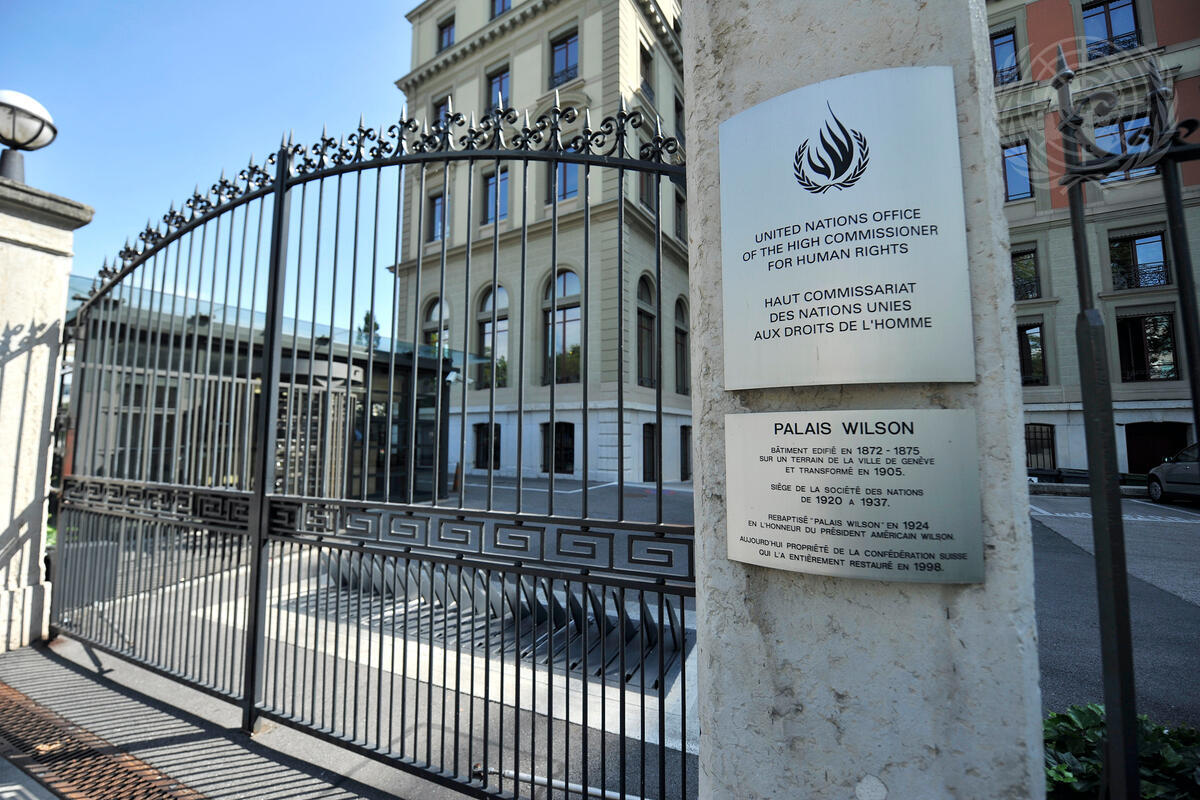© UN Photo / Jean-Marc Ferré

Urgent support needed for the UN Treaty Bodies
On the occasion of the 37th annual meeting of the chairpersons of the UN Human Rights Treaty Bodies, civil society organisations made a joint call to preserve this ‘essential part of the UN’s human rights ecosystem’.
The undersigned civil society organisations issue this statement at a time of profound crisis of the UN, and the human rights mechanisms in particular. The international human rights treaties are an essential part of the UN’s human rights ecosystem and form the legal backbone of the international human rights system.
The work of the Treaty Bodies is crucial in monitoring States parties’ implementation of international human rights treaties and in providing authoritative guidance on the fulfilment of obligations. Treaty Bodies deliver justice to individual victims, guide States parties in their human rights obligations, influence laws and public policies, and support local actors striving to protect rights on the ground.
Yet today, the treaty body system is facing a severe financial crisis that threatens its very functioning. Meetings are being cancelled, reviews postponed, and access by rights holders and civil society organisations diminished.
As announced in the framework of the 37th Annual Meeting of the Chairpersons, six Treaty Bodies have been forced to cancel one of their three annual sessions this year, resulting in the postponement of at least 35 State party reviews until further notice. This will lead to additional delays in the already backlogged workload of the Committees, especially the individual communications procedure.
Furthermore, Treaty Bodies with preventive and inquiry mandates will not be able to conduct planned on-site visits. These consequences are not abstract. They directly impact the enjoyment of rights by people and communities worldwide, particularly those already marginalised or under threat. We urge States parties to recognise that their decision to ratify international human rights treaties must be matched by a commitment to uphold the system that gives those treaties life.
This crisis unfolds as civil society organisations (CSOs) face growing difficulties worldwide, challenging their ability to engage with international human rights mechanisms. Since January 2024, CSOs have been unable to interact with Treaty Bodies virtually during in-session briefings and pre-sessions, which further hinders an inclusive and comprehensive discussion on human rights. Just as Committees face cuts to sessions and meeting time, it is all the more vital that UN Member States step up to ensure hybrid modalities.
This crisis must be addressed with urgency, commitment, and solidarity. We call on UN Member States, as the primary duty bearers, to:
- Pay their assessed contributions to the UN in full and on time in line with their obligations under the UN Charter (Article 17, paragraph 2). The ability of the Treaty Bodies and other human rights mechanisms to function should not be held hostage by budgetary shortfalls that are avoidable and political in nature.
- Reaffirm their commitment to the human rights system through political and financial support and ensure that the UN80 process is used to strengthen the human rights pillar of the UN, not to weaken it. This includes resisting attempts to weaken the human rights system’s mandates or marginalise its roles.
- Ensure the accessibility of treaty body processes, as well as other human rights mechanisms, to civil society and victims of human rights violations, including through hybrid modalities, predictability, and protection for those who engage with the UN system.
We, as civil society, remain deeply committed to working alongside States parties, Treaty Bodies and rights holders with a view to strengthening the UN human rights system.
Signatories:
- American Civil Liberties Union
- Amnesty International
- Center for Reproductive Rights
- Child Rights International Network (CRIN)
- Association for the Prevention of Torture (APT)
- Equality Now
- Franciscans International
- Geneva for Human Rights – Global Training & Policy Studies
- Global Action for Trans Equality (GATE)
- IDHEAS, Litigio Estratégico Mexico
- International Commission of Jurists
- International Federation for Human Rights
- International Federation of ACATs (FIACAT)
- International Lesbian, Gay, Bisexual, Trans and Intersex Association (ILGA World)
- International Rehabilitation Council for Torture Victims (IRCT)
- International Service for Human Rights (ISHR)
- MENA Rights Group
- NGO Network on UN Treaty Bodies (TB-Net) and its members:
- Centre for Civil and Political Rights (CCPR-Centre)
- Child Rights Connect
- International Disability Alliance (IDA)
- International Women’s Rights Action Watch Asia Pacific (IWRAW-Asia Pacific)
- The Global Initiative for Economic, Social and Cultural Rights (GIESCR)
- The International Movement Against All Forms of Discrimination and Racism (IMADR)
- World Organisation Against Torture (OMCT)
- Omega Research Foundation
- REDRESS Trust
- The Advocates for Human Rights
- The Center for Justice and International Law
- The Global Detention Project
- TRIAL International
- Women Deliver
